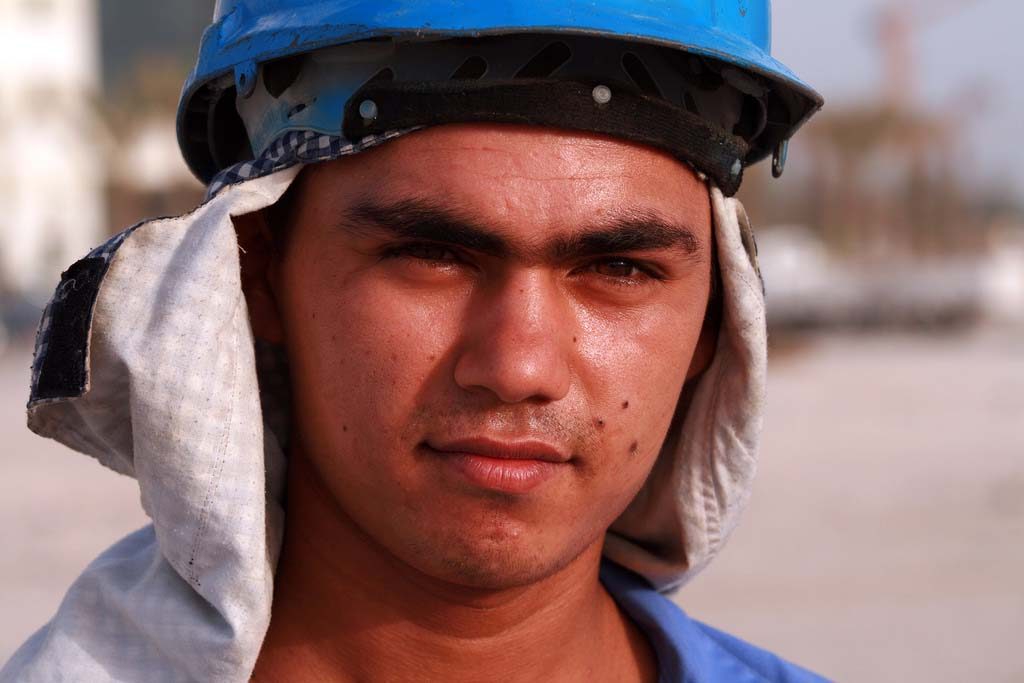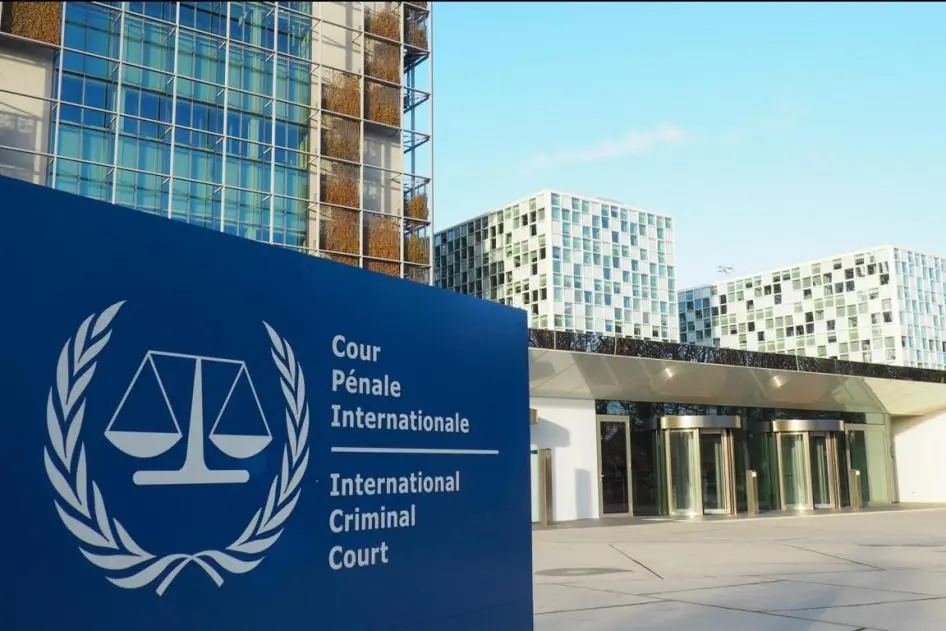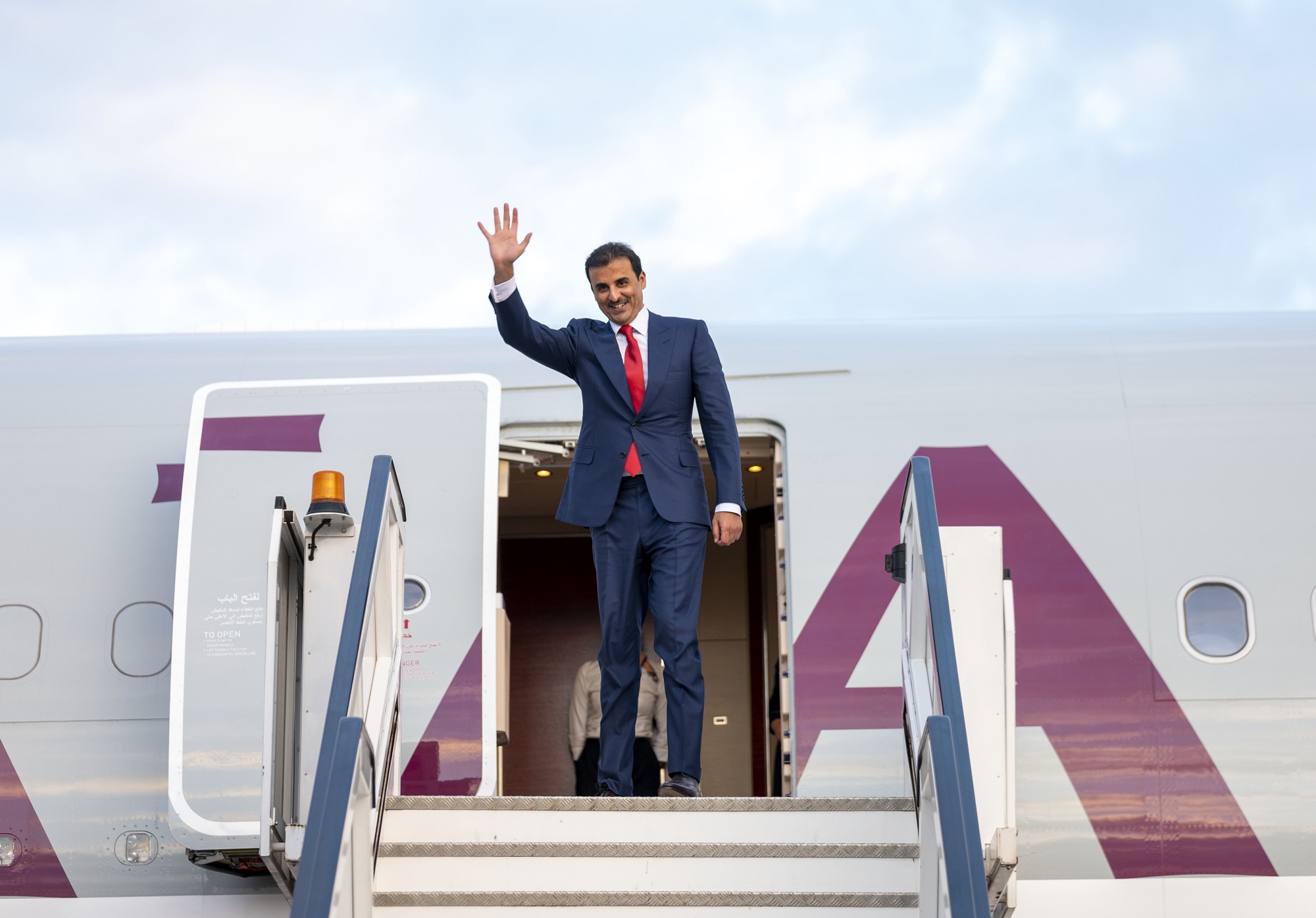
Qatar’s labor minister has been urged to improve conditions for the country’s 400,000 Nepali workers this week during a state visit to Kathmandu.
During his four-day trip, Abdullah bin Saleh Al Khulaifi was asked to implement better insurance policies for workers, establish orientation sessions before they travel to Qatar and require employers to pay the illegal commissions regularly demanded by manpower agencies.

The trip comes as Qatar seeks to hire hundreds of thousands of people in the run-up to the 2022 World Cup to support major projects such as the Doha Metro, football stadiums for the tournament and a road network to accommodate the growing population.
Just last month, labor officials approved work visa applications for 50,000 Bangladeshis to work in Qatar. And two weeks ago, Qatar’s Emir wrapped up a visit to India by thanking the more than 600,000 foreign workers here for their contributions to the country.
Insurance
Among the most important demands made this week by Nepali officials was a push for better insurance coverage for their workers in Qatar.
Speaking to Nepali media, State Minister for Labour Tek Bahadur Gurung said:
“Qatar’s insurance policy covers only work-related and road accidents. We have asked them to provide 24-hour insurance cover throughout the contract period.”
This could mean that the families of Nepali expats killed by heart attacks or unknown causes, which make up a large proportion of deaths, would also be entitled to compensation.

According to Nepali publication Kantipur, at least 70 percent (205 out of 684) of the families whose relatives have died in Qatar over the past four years have not received compensation.
It quoted Nepal-based labor migration expert Bandita Sijapati as saying:
“In (a) society like Nepal where the whole family usually depends on the earning of one person, (the) death of a bread-winner is bound to affect everyone. Mainly women who become widow at a young age endure the worst hardship and are forced to live with stigma.”
Though no agreements were signed regarding life and health insurance policies and other requests, Nepali officials said the Qatar delegation received these demands positively.
For his part Al Khulaifi reiterated that changes to the kafala sponsorship system were in the works, and was quoted as saying:
“We need more migrant workers to build the 2022 World Cup infrastructures. But, we do not want to compromise on their health and safety.”
Recruitment fees
Nepali officials also brought up one of the biggest problems labor-sending countries have been facing in recent years: the fees that many expats pay to manpower groups in their home countries to to secure jobs here.
The issue was discussed by Qatar and Bangladeshi officials last month, and was also raised in Nepal this week.
Kantipur reports:
“Nepali migrant workers are forced to pay between Rs20,000 (QR730) and Rs80,000 (QR2,921) despite Qatar’s pledge to make recruitment cost-free for immigrants. Nepal allows foreign employment agents to take up to Rs20,000 in fees, but many recruiting agencies charge gullible job-seekers even for free visa and tickets.”
Though both Nepal and Qatar have made it illegal for manpower agencies to charge expats hefty fees to secure their passage abroad, the practice continues unabated, putting many migrants in debt before they even begin working in Doha.

In a 160-page document released last year, Qatar Foundation called the fees “essentially a form of extortion by agents to secure jobs in Qatar.”
The report, titled Migrant Labor Recruitment to Qatar, questioned why unskilled and semi-skilled workers were made to pay for their own flights, medical tests, visas and other unspecified expenses, while employers in Qatar generally cover these costs for skilled and professional workers.
It also recommended that the Gulf state establish a National Employment Bureau to coordinate all recruitment policies and procedures.
According to QNA, Al Khulaifi responded to Nepali officials’ requests for a crackdown on manpower agencies by saying:
“Our law requires Qatari companies to pay for everything to hire migrant workers and anyone who does not abide by this law will be punished.”
Thoughts?







